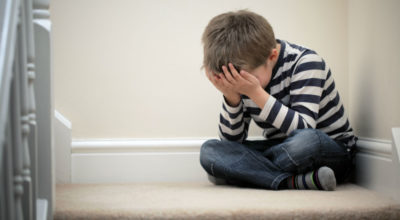Fake charm, inappropriate boundaries, manipulative affection, and misplaced loyalties are all but a few symptoms of Reactive Attachment Disorder (RAD). What is RAD? It is a diagnosis, similar to PTSD that is common among children who have experienced intense trauma such as neglect, abuse, orphanage life, or the death of a parent. These life-changing incidents rewire the brain in such a way that causes the child to lose trust in his or her caregivers. Foster and adoptive parents are at their wit’s end trying to help these kiddos. Most parents wish there were some type of pill they could give their child for an instant cure! Sadly, there is not. What can a parent do? How do I help my child through RAD?
Take A Break
Don’t feel guilty for taking a break. Everyone needs to recharge their batteries, after all, we are not Energizer Bunnies. Respite is a time when another person cares for your child for a few hours or a few days. You take time off from work and time away from your partner, why not take time off from your child? Find one (or two) consistent, trustworthy, reliable people that understand the complexity of trauma and set up regular times to assist you with your child. If your child is enrolled in a behavioral health clinic in your state, they may be eligible for behavioral health respite. These respite providers are specially trained in the needs of your child. Agencies like CASA or Big Brothers/Big Sisters also have mentorship programs that can really assist your child. Respite also provides a change of pace for your child; sometimes they need a break from you. When your child returns from respite, spend quality and quantity time with your child and let them know you missed them and they are loved.
Take A Vacation
“Are we there yet?”, “I gotta go potty!”, are some of the awesome phrases we all have heard or said on a family vacation. The opposite side of taking a vacation from your child is to take a vacation with your child. Family time outdoors promotes strong bonding. Kids who have attachment issues need this. Even if you think it may be torture, your child needs it. He of she needs to trust you as a caregiver and needs to explore new environments with you, The bottom line is that your child needs time alone with you without the distraction from TV, video games, or computers.
Take A Class
Wouldn’t it be nice to have a professional therapist on call, whenever you need? About 20-30 years ago, there wasn’t much literature out there on Attachment Disorders. Now there is a proliferation of information on Attachment that you can find through books, websites, magazines, podcasts, radio programs, or webinars.
The following are four experts on attachment who are at the top of their field:
Bruce Perry
Dr. Perry is the Senior Fellow of the Child Trauma Academy and is a nationally known psychotherapist who approaches attachment disorders from the perspective of childhood trauma on the brain.
Nancy Thomas
Dr. Thomas is a Therapeutic Parenting Specialist whose books, “When Love is Not Enough” and “99 Ways to Drive Your Child Sane” are essentials in any adoptive parent’s home.
Karyn Purvis
Dr. Purvis was the Rees-Jones Director and co-founder of the Institute of Child Development at Texas Christian University in Fort Worth, TX. He is also the creator of Trust-Based Relational Intervention.
The key to helping a kid with RAD is to have a healthy, well-rounded, well-rested, and well-educated caregiver. There is no pill. There is no instant fix. You need plenty of understanding of where the children came from and a positive outlook on his or her future. Don’t give up. Find help today.



